The fourth round of Iran-US talks will be held in Muscat today. The talks, which continue to follow three rounds of diplomatic consultations within the framework of nuclear confidence-building and the lifting of sanctions, will continue.
According to Ashura News, citing Mehr News Agency, Muscat, the capital of Oman, will once again host the fourth round of indirect talks between Iran and the United States today, Sunday, May 11.
Three rounds of these talks were previously held in Oman and Italy.
First stop
The first round of indirect talks between the Islamic Republic of Iran and the United States of America was also held in Muscat on Saturday (April 13) with the mediation of Oman.
In the first round of talks, the parties agreed that the framework of the talks would be “confidence-building and assurance regarding the peaceful nature of Iran’s nuclear program” in return for “effective lifting of sanctions by the United States.”
Other topics, including defense capabilities and regional issues, were not and will not be the subject of the talks.
Trip to Moscow
Before the start of the second round of Iran-US nuclear talks, our country’s Foreign Minister traveled to Russia. Araqchi announced the purpose of this trip as sending a written letter from the Leader of the Revolution to Putin.
During his trip to Moscow, the head of our country's diplomatic service met with Putin and, while conveying the Supreme Leader's message to Putin, held very detailed and good talks with him in all areas, including bilateral, regional, and international issues.
.
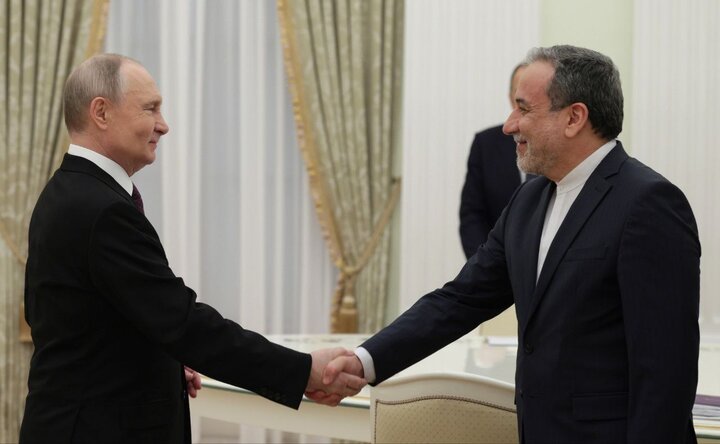
ایستگاه دوم
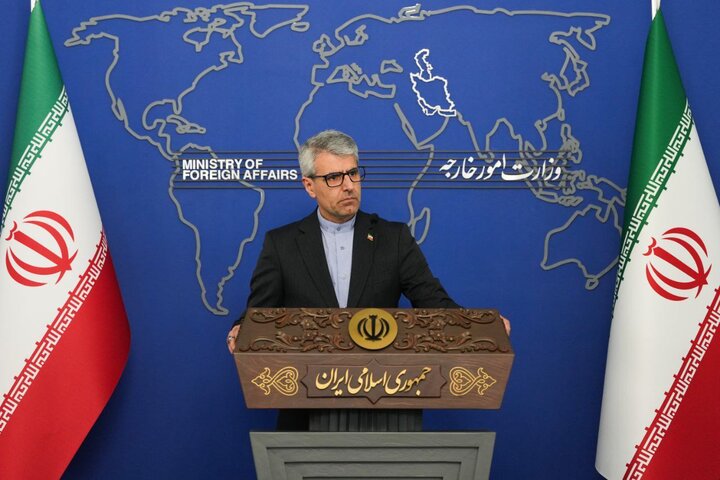
Second Station
The second round of indirect talks between Iran and the United States was held in Rome on Saturday (April 20) with the mediation of Oman.
The Iranian delegation in the first and second rounds was headed by Iranian Foreign Minister Seyyed Abbas Araqchi, and the US delegation was headed by Steve Whittock, the US chief negotiator.
Majid Takht-Ravanchi, Deputy Foreign Minister for Political Affairs, Kazem Gharibabadi, Deputy Foreign Ministry for Legal and International Affairs, Ismail Baghaei, Spokesperson for the Ministry of Foreign Affairs, and Behzad Saberi, Advisor to the Foreign Minister, were among those who accompanied Araqchi.
In the second round of talks, the general framework of the talks was discussed and negotiated.
Optimism may be justified, but only with great caution
After the second round of talks, our country's Foreign Minister Seyyed Abbas Araqchi wrote on his personal page: The relatively positive atmosphere in Rome led to progress in the principles and goals of a possible agreement. We explained how for many in Iran the JCPOA is no longer good enough. For them, what remains of the JCPOA are only its “lessons learned.” Personally, I tend to take this view.
He added: “Expert talks will begin in the coming days to examine the details. After that, we will be in a better position to judge. For now, optimism may be justified, but only with great caution.”
Iran-US technical-expert meeting to be held on Saturday
Esmail Baghai, spokesman for the Iranian Foreign Ministry, announced on May 20 that the date of the technical-expert meeting between Iran and the US had been changed.
According to Baghai, at the suggestion of Oman and the agreement of the Iranian and US delegations, the technical consultative meeting between the two countries, which was to be held within the framework of indirect talks between the two sides on Wednesday, was postponed to next Saturday, with the participation of the heads of the delegations of the two countries.
The fourth station of the talks; The path to building trust with cautious steps
Travel to China
On the eve of the third round of Iran-US nuclear talks, Araghchi made a trip to Beijing. This trip carried important messages that go beyond the usual diplomatic consultations. This trip, especially before the Iran-US expert meeting and the short distance to the third round of talks, indicates that Tehran is seeking to more precisely regulate the negotiation equations through coordination with influential regional and global players.
Diplomatic sources have stated that the purpose of this trip is to exchange views with China as a member of the JCPOA group and a key player in the Iranian nuclear file.
Our country’s Foreign Minister met and talked with his Chinese counterpart during this trip.
After meeting with his counterpart in Beijing, Foreign Minister Seyyed Abbas Araghchi wrote in Chinese on his X page: I am happy that I visited China for the second time in less than 4 months. Good friends should meet and interact with each other continuously. As a Chinese proverb says, "The road is smoother with friends."
.
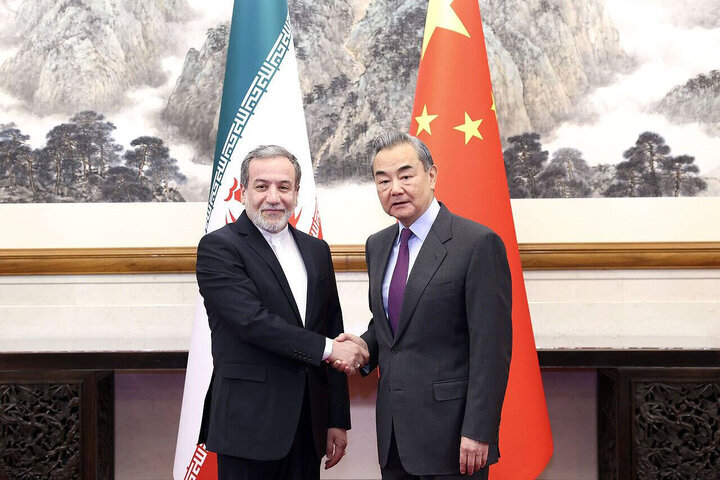
Third Station
The third round of indirect Iran-US talks was held in Muscat, Oman on Saturday, May 26.
"Seyed Abbas Araqchi", the Minister of Foreign Affairs of our country, arrived in Muscat on Friday evening (May 26) to attend the third round of indirect Iran-US talks.
During the trip, Araqchi attended the Oman Book Fair 2025 with his Omani counterpart to unveil the Arabic version of the book "The Power of Negotiation".
One of the distinguishing features of the third round of talks was the indirect technical meetings between Iran and the United States.
The technical and expert teams of Iran and the United States were chaired by Majid Takht-Ravanchi and Kazem Gharibabadi, Deputy Foreign Ministers of Iran, as well as Michael Anton, Director of the Office of Policy Planning at the US State Department.
Fourth Station
After the end of the third round of talks, Omani Foreign Minister Badr Al-Busaidy announced in X: The US-Iran talks were a common desire to reach an agreement based on mutual respect and lasting commitments.
The Omani Foreign Minister continued in this regard: The main principles, objectives and technical concerns were all examined. The talks will continue with a high-level meeting currently scheduled for May 3 (May 13).
The fourth round of talks was scheduled to be held last Saturday (May 3), but Omani Foreign Minister Badr Al-Busaidy emphasized on Thursday, May 2, in a message on the X social network: “For logistical reasons, we are rescheduling the meeting related to the negotiations between Iran and the United States. The new round of talks was scheduled to be held in Rome on Saturday. The new date for the talks will be announced after an agreement is reached.”
Axios had previously reported that the fourth round of talks had been postponed.
Abbas Araqchi also wrote in a message on the X network: “There is no change in Iran’s determination to reach a fair and balanced agreement. The talks were postponed to another time due to technical considerations and mediatory coordination.”
Disagreements in the Trump administration
The American magazine “Politico” reported on Thursday, May 25, that the administration of US President Donald Trump has announced two key appointments in recent days in order to advance negotiations with Iran on its nuclear program. Michael Anton, a senior State Department official, has been appointed as the head of the technical team for negotiations with Iran, and earlier, Merav Sern, an Israeli-American citizen, has been selected to head the Iran-Israel desk on the White House National Security Council. These developments come as the Iran-US talks, brokered by Oman, have reached a critical stage and are accompanied by tensions and disagreements within the US government.
US President Trump said before traveling to Rome to attend the funeral of Pope Francis that "I think we will reach an agreement with Iran."
CBS News reported on Thursday (May 1) local time: US National Security Advisor Mike Waltz and his assistant Alex Wang are leaving their positions, but Fox News, a Republican and Trump administration affiliate, reported that the US National Security Advisor and his deputy have been fired.
Fox News, citing sources familiar with the matter, said that Mike Waltz, the national security adviser to US President Donald Trump's administration, and other staff members of the National Security Council have been fired.
Fox News confirmed that Waltz and his deputy Alex Wang were removed from their posts on Thursday.
The sources said that the dismissal of Mike Waltz, the former US national security adviser, was related to his close coordination with Israeli Prime Minister Benjamin Netanyahu about using the military option against Iran before Netanyahu's recent visit to the White House.
Waltz's dismissal came on the eve of the fourth round of indirect talks between Tehran and Washington on the issue of its nuclear program.
The official stance of the US negotiating delegation is important to us
Baqai said in a press conference on Monday, May 5, in response to a question from a Mehr reporter, that it has been claimed that the reason for the interruption in the Iran-US negotiations is related to internal differences in the US team, and in particular the revelation of the collusion of the US National Security Advisor with Netanyahu to impose Netanyahu's extremist and war-mongering views on the US negotiating team. Is it really true that Netanyahu was trying to plan and carry out a kind of coup against Trump through some key people in policymaking related to Iran, including the country's National Security Advisor? He said: The decision to postpone the negotiations was made at the suggestion of Oman as a mediator of negotiations and understanding between the three parties. We have heard a lot of news. The spectrum of warmongers and opponents of diplomacy inside and outside the US, centered on the Zionist regime, have made an extraordinary effort in recent weeks to disrupt the negotiations process. But the official stance of the US negotiating delegation is important to us. It is up to them how they can form this coherence within themselves and be able to adopt reasonable, logical, and realistic positions.
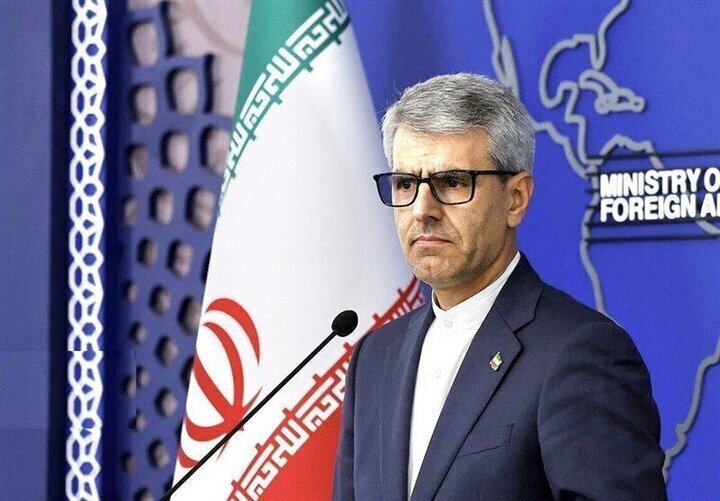
The Foreign Ministry spokesman continued: “As far as we are concerned, our position has been constant and unchangeable for the past 20 years. While emphasizing the peaceful nature of Iran’s nuclear program, we have been ready to build trust in discussions that have caused the opposing sides to make excuses, whether for good or bad reasons. This position of ours has been raised unchangeably in every meeting.
Disagreements within the Trump team; a new obstacle in the path of negotiations with Iran
In recent days, before the start of the fourth round of indirect talks between Iran and the United States, we have witnessed statements regarding Iran’s peaceful nuclear program by Steve Whittaker, the US President’s representative in the negotiations, and the expression of demands that go beyond Iran’s red lines.
Whittaker said in an exclusive interview with the Breitbart News website that if Iran is really not looking for a bomb, then they should dismantle their enrichment facilities and they should not have centrifuges.
He said: "They should dilute all the fuel they have and send it to a distant place, and if they want to have a civilian nuclear program, they should convert it into a civilian program."
The fourth stop in the negotiations; the path to confidence-building with cautious steps
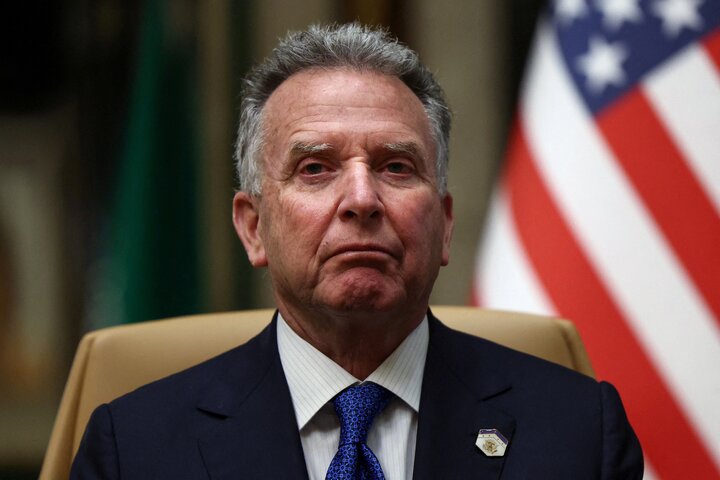
Whittaker’s contradictory statements come at a time when the US’s repeated “carrot and stick” policy could derail the negotiations. The main goal of Iran’s negotiating team is to lift oppressive sanctions while preserving its nuclear achievements. Iran has repeatedly emphasized the peaceful nature of its nuclear program and announced its readiness for confidence-building measures, provided that national security is not harmed. However, ignoring Iran’s legitimate right to enrich uranium under the Non-Proliferation Treaty (NPT) will prevent a lasting agreement from being reached.
One of the key factors influencing the upcoming negotiations is internal divisions within the Trump administration’s second administration. The administration, which has been taking an aggressive approach since the beginning of 2025, is facing tensions among its senior officials, an issue that could further complicate decision-making on Iran.


Post a comment